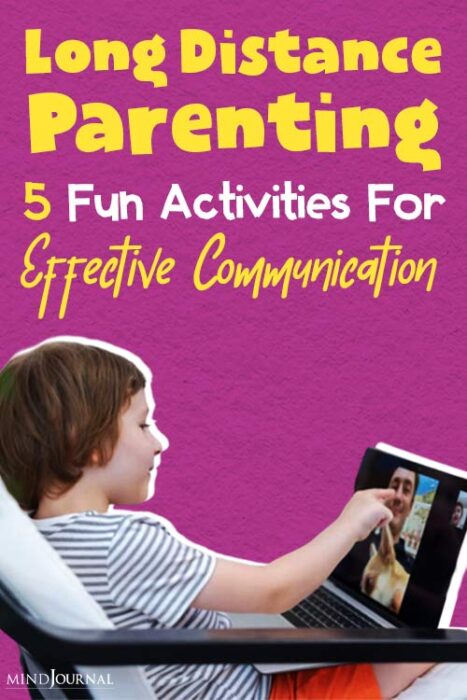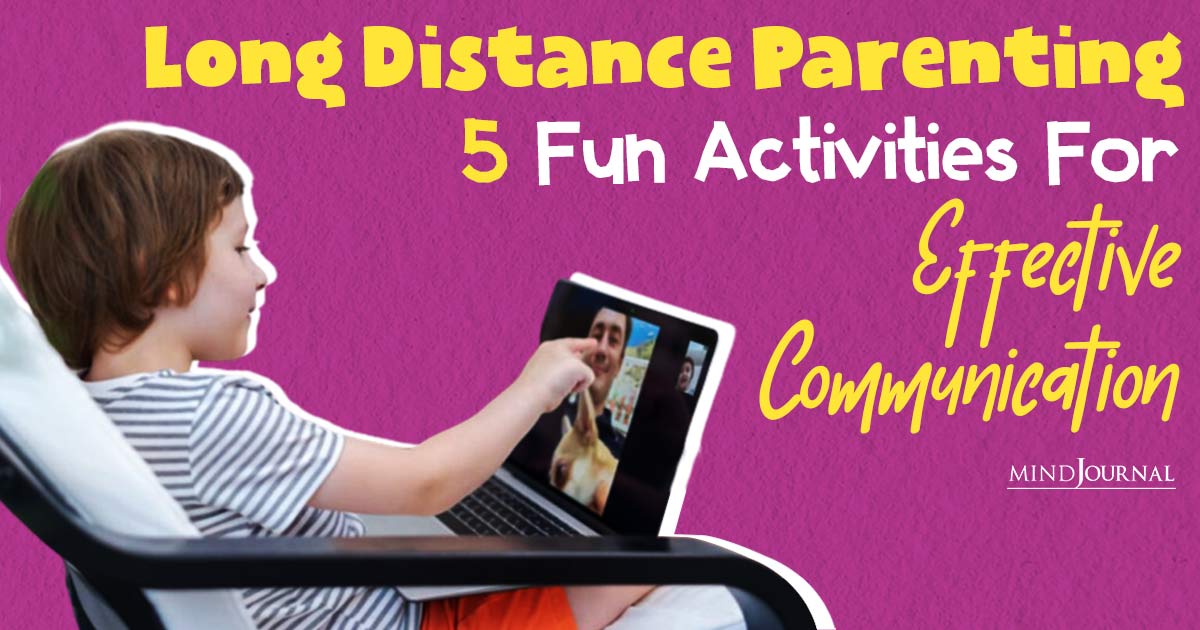In today’s fast-paced world, it’s not uncommon for parents to find themselves physically separated from their kids due to work, studies, or other life demands. Yep, we’re talking about long distance parenting – a scenario that comes with its own set of twists and turns.
You see, while it might be necessary due to different reasons, it brings along a bag of unique challenges for both parents and their little ones. So, let’s dive into this article and unpack what happens when distance plays a role in parenting.
We’re talking about how it can affect your kids emotionally, how their cognitive development might shift gears, and what happens to their social skills.
And hey, it’s not all doom and gloom – we’re also here to chat about some smart strategies that can help keep that parent-child bond strong, no matter the miles between you.
Effects Of Long Distance Parenting On Children
Emotional Well-being
One of the most significant effects of long distance parenting is the emotional toll it can take on children. Separation from a parent can trigger feelings of sadness, anxiety, and even abandonment, leading to emotional instability.
Children may struggle with a sense of longing and a fear of being forgotten, impacting their self-esteem and overall emotional well-being.
Without proper communication and reassurance, they might internalize these emotions, leading to potential difficulties in forming healthy relationships in the future.
Read more here: The 7 Physical Signs of Extreme Sadness
Cognitive Development and Academic Performance
Long distance parenting can also impact children’s cognitive development and academic performance.
The absence of a parent’s consistent guidance and involvement can lead to challenges in time management, organization, and prioritization.
As a result, academic performance might suffer due to the lack of structured support, potentially hindering a child’s educational progress.
Moreover, the absence of a parent’s active engagement in their learning experiences can limit the child’s exposure to diverse perspectives and hinder the development of critical thinking skills.
Social Development and Relationships
The presence of parents plays a vital role in shaping a child’s social skills and relationships. Long distance parenting can limit opportunities for children to engage in social activities, make friends, and learn essential interpersonal skills.
They might experience difficulties in forming connections and adjusting to social situations due to their physical separation from one of their primary caregivers.
The absence of a parent’s guidance during crucial social milestones can lead to feelings of isolation and hinder the child’s ability to build meaningful relationships.
Effective Communication In Long Distance Parenting
Effective communication is paramount in mitigating the negative effects of long distance parenting. Regular, open, and honest communication in parenting can help children understand the reasons for their parent’s absence and provide reassurance of their love and commitment.
Video calls, texts, emails, and even traditional letters can bridge the geographical gap, allowing parents to stay involved in their children’s lives and offer emotional support.
Consistent communication in parenting fosters a sense of connection, comfort, and security, helping children navigate the challenges of their daily lives.
Long Distance Parenting Activity
1. Virtual Storytimes:
Example: Choose a beloved storybook and take turns reading aloud via video call. Use animated voices to bring the characters to life and create an immersive experience.
2. Online Games:
Example: Engage in a friendly competition by playing online multiplayer games like trivia quizzes or virtual scavenger hunts. Collaborating in the virtual world can be as exciting as in-person play.
3. Collaborative Art Projects:
Example: Select an art theme or prompt and create individual artworks simultaneously. Share your progress during the process and unveil your masterpieces at the end.
4. Virtual Cooking Sessions:
Example: Pick a recipe for a dish you both enjoy and cook together while video chatting. Exchange cooking tips and see whose creation turns out the most delicious.
5. Movie Nights:
Example: Sync up a movie on both ends and watch it together. Pause for discussions during the movie or have a post-movie analysis to share your thoughts and reactions.
6. Virtual Adventures:
Example: Explore a virtual tour of a zoo, museum, or historical site. Discuss interesting facts and discoveries as if you were on an actual outing.
All these activities can create a sense of togetherness and provide opportunities for meaningful interaction. These activities demonstrate a parent’s investment in their child’s interests and hobbies, fostering a sense of belonging and connection despite the physical distance.
Participating in shared activities, regardless of physical separation, serves as a powerful means to fortify the parent-child relationship. These engagements, conducted through technology and imagination, weave threads of connection that transcend miles.
Creating a routine that includes regular communication, scheduled virtual visits, and anticipated reunions can provide children with a sense of structure and predictability.
Involving children in decision-making processes regarding visitation schedules and activities empowers them and reinforces their importance in the parent-child relationship.
Read more here: 10 Habits To Strengthen Your Relationship With Your Child
Additionally, seeking professional guidance, such as counseling or therapy, can provide a safe space for children to express their emotions and cope with the challenges of being physically separated from a parent.
However, with intentional efforts, effective communication, and creative engagement, parents can minimize the negative effects and maintain a strong connection with their children. It’s crucial to remember that the quality of the parent-child relationship can transcend physical distance, provided there is consistent love, support, and involvement.
By staying attuned to their children’s needs and employing strategies to nurture their growth, long distance parents can navigate this complex terrain while fostering their children’s holistic development.









Leave a Reply
You must be logged in to post a comment.